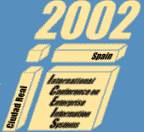|
|||||||||||||||||||||||||||||||||||
|
Traditionally production control at North American Automotive first-tier supplier plants (both internal and external) is
based on the information from corporate material planning system. The process capabilities of these plants are significantly
affected by uncertainties, such as random yield, production rate and downtime. Thousands of inter-related events and exceptions
occur on the manufacturing floor every day: as a result, expediting has become the standard way of doing business, and executing
the planned schedule has become the exception. Because of this it is difficult to provide adequate levels of customer service
without high premium freight, inventory, and overtime.
Competitive pressure to reduce the cost of operations is forcing a revision in the way production related information is managed.
Specifically there is a need to arrive at a real-time decision support system in production execution. Such a system,
referred as Manufacturing Execution System (MES), must integrate customer requirements from corporate MRP with plant floor
automation data. Brief Bio of Dr. Oleg Gusikhin Dr. Gusikhin is a Technical Specialist in Supply Chain Management and e-Technology at Ford Scientific Research Laboratory (Dearborn, Michigan, USA). Dr. Gusikhin has over 10 years experience in the area of AI implementation for Manufacturing Execution, Logistics, and Scheduling in Automotive Industry. He is a Certified in Production and Inventory Management (CPIM) by American Productions and Inventory Control Society (APICS) and Certified Enterprise Integrator (CEI) by Society of Manufacturing Engineers. He organized and chaired the sessions on Supply Chain Management at a number of International Conferences, including SAE (Society of Automotive Engineers) World Congress 2002, International INFORMS Conference 2001.
We review the role of the specific relationship types in conceptual modeling. We show that their practical interest lies in the fact that we can develop special mechanisms to ease their representation, special procedures for reasoning about them, and methods for their efficient implementation. The talk focuses on two specific relationship types.
A binary relationship type with common participants is one in which all instances of one participant are related to the same instance of the other participant. The concept applies also to n-ary relationship types. Brief Bio of Dr. Antoni Olivé Antoni Olivé is a professor of information systems at the Universitat Politècnica de Catalunya in Barcelona. He has worked in this field during over 20 years, mainly in the university and research environments. His main interests have been, and are, conceptual modeling, requirements engineering, information systems design and databases. He has taught extensively on these topics. He has also conducted research on these topics, which has been published in international journals and conferences. He is a member of IFIP WG8.1 (Design and evaluation of information systems) where he served as chairman during 1989-1994.
The revolution of information access through changes in information technologies continues. The current component of greatest interest in this phenomena of the global transformation of economies, education, government etc. is not the traditional RAPID growth of computer power. It is rather, the network, with its MORE rapid growth .The implications of network changes for collaborations of people-people, people-machines and machines-machines will define the ongoing revolution for the near future. Recent changes in the information technology components (hardware, the software and the information public ally available) and the pace at which human systems can absorb change, have caused a review of the nature of the systems to be designed. The response of three vendors and the implication to Enterprise Information system builders is considered. Brief Bio of Dr. Thomas Greene Thomas Greene is the Information Officer and member of the Research Staff of the MIT Laboratory for Computer
Science. For the period 2000 - 2002, Dr. Greene is on leave from MIT to the National Science Foundation. He is Senior
Program Director for Advanced Networking Infrastructure in the ANIR division of the CISE directorate of the NSF.
The talk raisons on the impact that involved measurement models (MM) have on the complexity of an empirical evaluation process. Brief Bio of Dr. Giovanni Cantone Giovanni Cantone is an Associate Professor of Computer Science in the Department of Informatics, Systems and Production Management of the Faculty of Engineering, where he holds the courses of Experimental Informatics (ESE), Industrial Informatics, and Object-Oriented and Concurrent programming. Giovanni is member of the Scientific-Technical Committee of the Administration and Documentation Computing Center, at the University of Rome at Tor Vergata, Roma, Italy. He has also served at the University of Naples and the University of Maryland. Giovanni is a founding member of the International Software Engineering Research Network, a member of ESERNET, the European Software Engineering Research Network EC funded project, an affiliated member of the UMD Experimental Software Engineering Group, and has been on the National Board of the Italian Association of Informatics and Automatic Computing. Since 1974, he has done software engineering research. His current research interests are in empirical software engineering, and include software maintenance processes, process reengineering, software technology transfer, software measurements, and software quality. His doctoral "Laurea" degree is from the Faculty of Engineering of the University of Naples.
Copyright © Escola Superior de Tecnologia de Setúbal, Instituto Politécnico de Setúbal |
||||||||||||||||||||||||||||||||||





